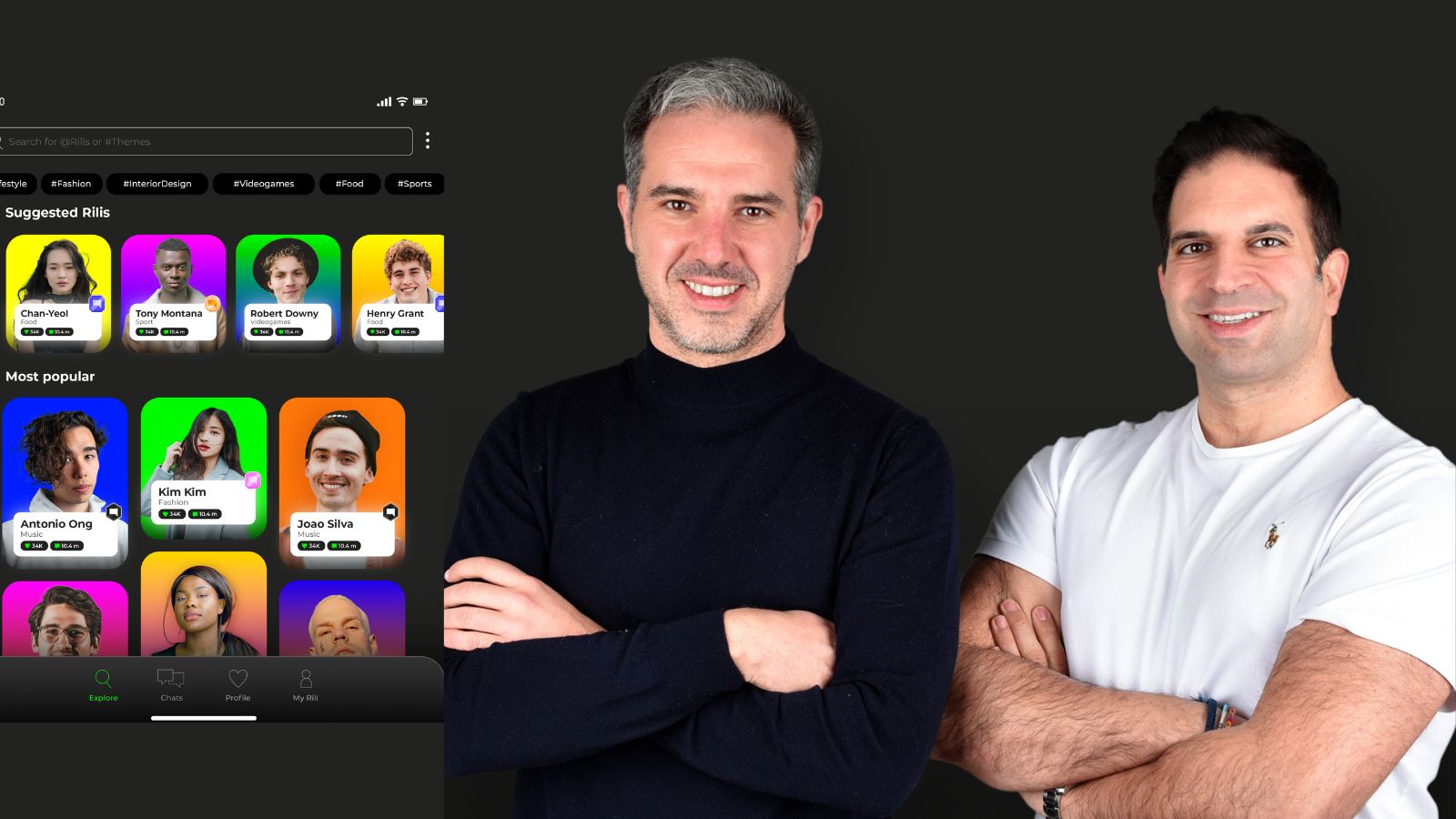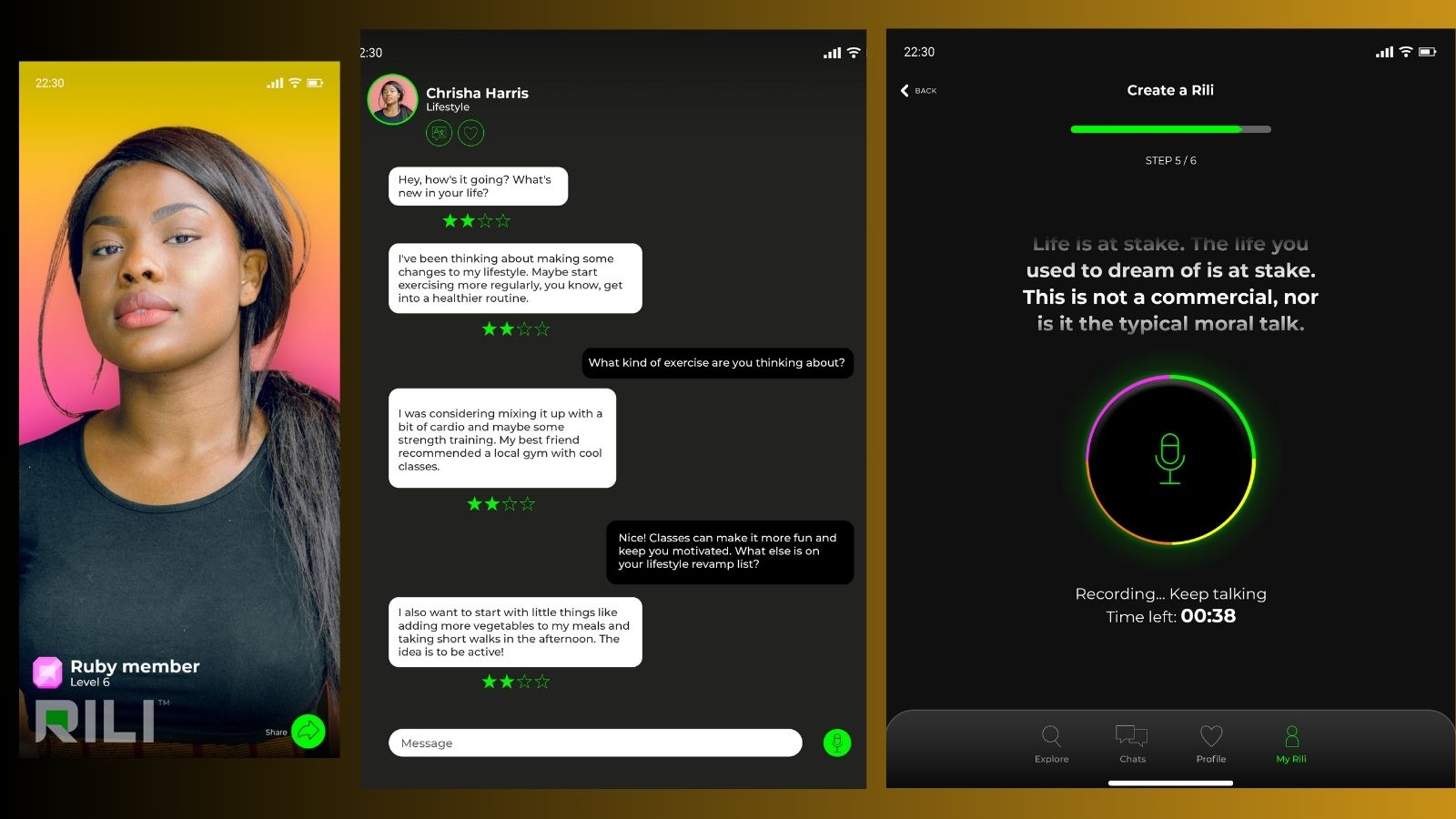“Our purpose is not to substitute or replace human connections. We want to expand human connections beyond the barriers of geography and language. We want everyone to be connected no matter where they are or when they want to,” explains Antonio Camacho, who, along with Jorge Cuervo, co-founded Rili.ai, possibly the world’s first AI-powered social network.
At a time when loneliness is becoming an epidemic, especially among Gen Z, Camacho, and Cuervo, two entrepreneurs from Belgium, are on a mission to nurture genuine human connections through the power of AI and social networking. The duo has developed a platform that enables users to create their digital twins, or AI-powered avatars that can engage in natural conversations and bond with others across the globe.

When asked about the inspiration behind the app, the duo says the idea stemmed from a startling statistic that 80 per cent of Gen Z individuals were feeling lonely despite being highly connected through social media. “We saw a statistical publication talking about undesired loneliness. It was so alarming and impressive as we could know how Gen Z is feeling lonely even when they are not alone,” Cuervo adds.
What is Rili.ai?
At its core, the application essentially aims to foster genuine connections by allowing its users to train their digital representations of themselves. “We are trying to build bonds between the people and to make them share their knowledge with the world. Anyone in his or her house could be a TV presenter or a showman or whatever, an influencer,” says Camacho. In a sea of AI-powered social apps, Rili.ai stands out owing to its emphasis on personalised context-aware digital twins. These twins are known as ‘Rilis’.
“Instead of generic prompting, you just give a general overview of what’s going to be the digital twin,” Cuervo explained. Users can train their digital twin through direct interactions or by feeding it content from their existing social media presence. Another key innovation is its infinite memory capability, allowing digital twins to recall and build upon previous conversations.
The platform also emphasises safeguards against misuse, such as hallucinations, personality conflicts, and inappropriate content. “We are quite resilient when we do this,” Camacho asserts, citing instances where the AI responded appropriately to users expressing suicidal thoughts.
Apart from promoting interpersonal connections, Rili.ai envisions empowering content creators by providing them with a direct line of communication with their audience. “I can ask my Rili, which is the most demanded topic from my audience, what they want me to talk about,” Camacho explains.
Story continues below this ad
How does Rili.ai work?
According to the duo, users start by giving a general overview to define their digital twin’s personality and traits. Later, they can train and improve their Rilis brain in two ways – directly interacting and conversing with it and allowing it to learn the user’s communication style, knowledge, and opinions over time; or connecting Rili to the user’s existing social media accounts such as YouTube, Twitch, etc., to let it analyse the user’s posted content to build its knowledge base. The app is available in 100 languages.
 A glimpse into how users will see the Rili.ai app. (Image: Rili)
A glimpse into how users will see the Rili.ai app. (Image: Rili)
The makers claim the more a user converses with and provides the content to their Rili, the better it becomes at naturally imitating that person’s way of communicating and behaviour. In terms of the underlying technology, without explicitly revealing the model, the duo says Rili.ai leverages LLMs with “infinite memory” allowing it to recall and build on previous conversations. This also allows them to build deeper bonds with the user.
Besides, users can explore other people’s public Rilis as well, filtering by topics, interests, or creators. The app facilitates real-time voice and video conversations with Rilis, using technologies like voice cloning, lip-syncing, and speech recognition to create a realistic experience. It is to be noted that we are yet to gain access to the platform.
Rili to launch across nations
As Rili.ai prepares for its alpha launch in six countries, including India, the co-founders are mindful of cultural nuances and language barriers. “India is a country, but it really looks like different countries into one single country,” Cuervo acknowledges. To address this diversity, the platform is designed to be language-agnostic, with the ability to improve its cultural understanding through user interactions. Rili also offers Hindi, and the makers assert that they will include more languages in the coming days.
Story continues below this ad
Asked about the social impact that they were anticipating with the application, Camacho and Cuervo say they are optimistic about the social impact of their creation. “We are trying to build bonds between people and help them share their knowledge with the world. Just in the same way they use YouTube or Twitch,” Cuervo adds.



 A glimpse into how users will see the Rili.ai app. (Image: Rili)
A glimpse into how users will see the Rili.ai app. (Image: Rili)





